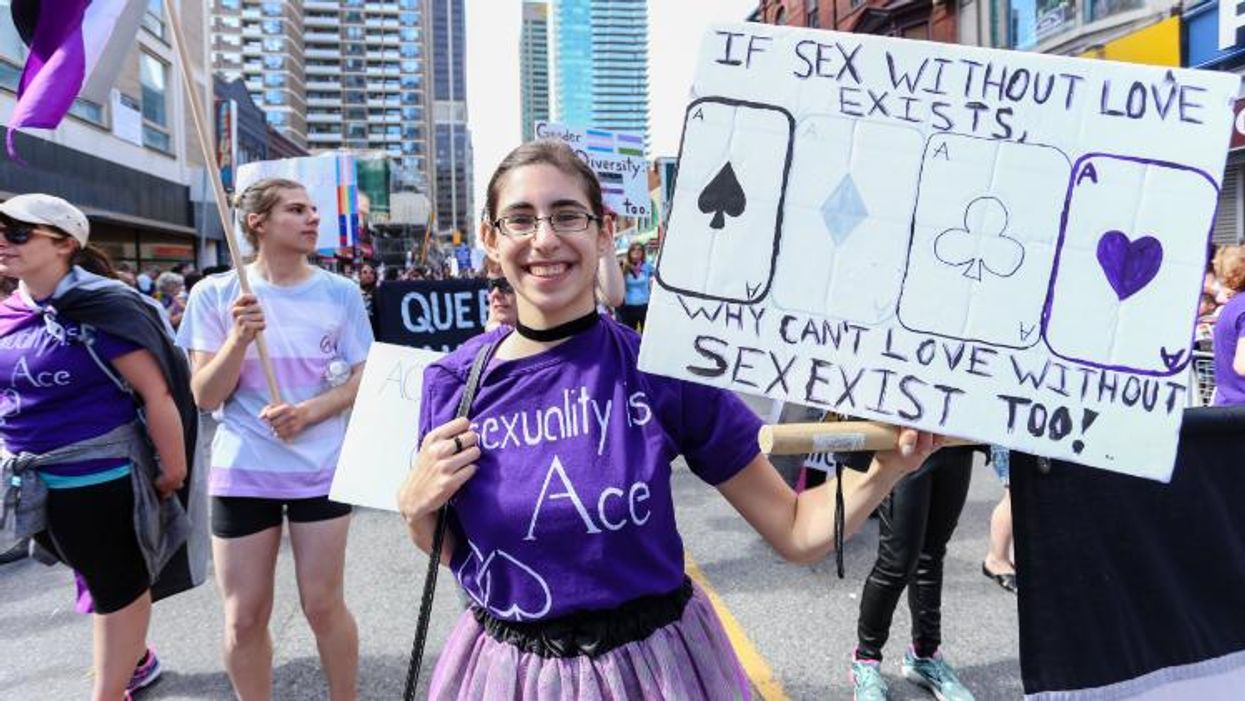All Rights reserved
By continuing to use our site, you agree to our Privacy Policy and Terms of Use.
Your support makes The Advocate's original LGBTQ+ reporting possible. Become a member today to help us continue this work.
This week, October 25-31, is Asexual Awareness Week, and to help mark the occasion, the Trevor Project is releasing new research on the Ace community. The definition of asexuality varies by individual, but it generally refers to a diminished or lack of sexual attraction to others.
The new findings from the Trevor Project show that one in 10 LGBTQ+ youth actually identify as asexual or on the ace spectrum. The study looked at over 40,000 LGBTQ+ youth, and found that 10 percent said they identify as some form of asexual. Asexual youth were then given further options to describe how they identify.
Fifteen percent of ace youth identify as demisexual, meaning that they don't experience primary sexual attraction, only secondary attraction after they've gotten to know someone. Nine percent also identify as greysexual, a term meaning that a person experiences infrequent or rare sexual attraction. Additionally, nine percent of ace youth are polyamorous, and many chose romantic attraction labels such as panromantic (20 percent), biromantic (17 percent) and aromantic (13 percent).
"Asexual youth are often forgotten in both research and outreach efforts," Myeshia Price-Feeney,Ph.D., a research scientist at the Trevor Project said in a statement.
Price-Feeney said that "asexual youth often selected other ways of describing their overall sexual orientation," and added that it suggests "a desire to represent their sexuality in more nuanced ways."
According to the research, trans and nonbinary youth are more likely to identify as ace. While 25 percent of the overall population studied is trans or nonbinary, 41 percent of ace youth are, with another 13 percent questioning if they are. Specifically, the study found that 3 percent of cis men, and 9 percent of cis women identify as ace, while 13 percent of trans men and 6 percent of trans women are ace. 20 percent of nonbinary youth and 15 percent of those who were questioning their gender also said they are ace.
The study also found some troubling news. According to the research, asexual youth are more likely than the overall LGBTQ+ youth population to be both anxious and depressed. Seventy-five percent of ace youth said they experience symptoms of generalized anxiety disorder, compared to 68 percent of the overall sample, and 61 percent said they were depressed compared to 55 percent of the overall LGBTQ+ youth population. Attempted suicide rates were at 13 percent for ace youth and 14 percent overall.
If you or someone you know is having thoughts of suicide or self-harm, you can contact the Trevor Project at 1-866-488-7386, use the TrevorChat online, or text START to 678-678 to text with someone.




































































Charlie Kirk DID say stoning gay people was the 'perfect law' — and these other heinous quotes